Lucky (2011)
Gênero : Drama
Runtime : 1H 40M
Director : Avie Luthra
Escritor : Avie Luthra
Sinopse
A 10-year-old South African orphan leaves his Zulu village to make his own life in the city... only to find no one will help him, except a formidable Indian woman.

A young Jewish boy travels europe in search of the grave of his Great Grandfather who was killed by the Nazis in the War.

A young man from an early age falls in love with a girl whose family is not in good standing with the ruling Communist party. His father however is a member of the "Stasi", the secret state police. The father not only hinders his son's relationship with the girl, but he arranges for his son, after finishing school, to become a Stasi spy himself.

A haunting portrait of a well-established German family living on the outskirts of Berlin in their ideal world, but are slowly shaken by external influences. It's a subtle portrait of human desire, inner desolation, self-deception and moral decadence. The Larsens are a picture perfect family from the German upper-middle class. However, the head of the family, Markus, an architect, lives a secret, bisexual double life as his wife Christine and their eleven-year-old daughter Elisabeth drown in unendurable loneliness. Markus realizes that he has a strong yearning for one of his daughter's school friends, Johannes, 12. He succeeds in getting closer to Johannes and binds the boy to himself with ever-increasing intensity. His wife is desperately aware of the emotional distance of her husband, but only her daughter Elizabeth, reacting to the sexually laden atmosphere, sees through the lies and secrets that she instinctively knows to be an growing, disruptive threat to the entire family

South of the Moon is the story of a young boy and his uncle, one dealing with the complexity and confusion of adolescence, the other with the pain and torment of regret. A pensive twelve year old swimmer is faced with a decision that will put the past on a direct collision course with the present in first-time feature filmmaker Antonio DiVerdis' wistful, character-driven drama. Coleman Hawkins is teetering on the brink of adulthood. By night Coleman is haunted by a mysterious woman, and by day he's infatuated with pretty classmate Alexa. Unsure of which path to walk in life, promising swimmer Coleman continually seeks out the advice of his uncle Matt...
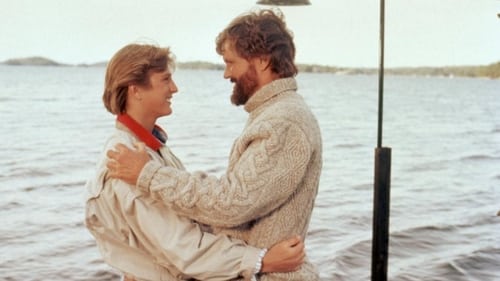
An Air Force officer returns to his father, son and remarried wife in Vermont after 17 years in Vietnam.

Matei lives with his grandfather in Romania. His parents have gone to work in Italy. After arguing with his grandfather, he leaves. A poignant, beautifully shot film on the illusions and disillusionments of childhood.

The story begins with an experiment. A filmmaker in the country of Georgia posts an ad inviting youth to audition for her film. Facing the camera, the hopefuls confess their struggles and dreams. These raw interviews unfold seamlessly into cinematic slivers of Georgian life.

If the scorpion could see and the viper could hear, there would be no escape". The viper is deaf and the scorpion can't see, so it is and so shall be, the same way the countryside is peaceful and the city bustling and the human being impossible to satisfy. Lacrau demands the return "to the curve where man got lost" in a journey from the city towards nature. The escape from chaos and emotional void we call progress; matter without spirit, without will. The search for the most ancient sensations and relationships of mankind. The amazement, the fear of the unknown, the loss of basic comforts, loneliness, the meeting with the other, the other animal, the other vegetable. A dive looking for a connection with the world. Where beginning and end are the same, but I am not.

A group of boys, roughly seven to eleven years of age, go skinny-dipping in a river near their small Mexican town one afternoon and there find themselves the butt of an old vagabond's practical joke, the man stealing all their clothes from them. Humiliated about having to walk home in the buff, the tykes decide to get even, declare war. Yet, as the generations battle it out, a mutual respect develops, the depth of which is evident once the man has a heart attack during one of his romps with the kids. Will the boys' older pal recuperate so that they can engage in one final battle.

In 1939, José Garcés is in French prison camp after the defeat of Spain's Republicans. To entertain and inspire his fellow prisoners, he tells the story of becoming a man in 1919, the year he realized that learning to live is the same as learning to die. His stiff and demanding father loses a fortune in German war bonds, takes a job in Caspe, and leaves José on his own in Zaragoza to finish high school while apprenticing in a pharmacy. José courts his beloved Valentina via letters, becomes intimate with Isabel, a maid he meets in a cinema who shares his ideas of free love, and comes under the influence of El Checa, an anarchist and gentle teacher who leads a doomed revolt.

The film explores the role of photography, since its rudimentary beginnings in the 1840s, in shaping the identity, aspirations, and social emergence of African Americans from slavery to the present. The dramatic arch is developed as a visual narrative that flows through the past 160 years to reveal black photography as an instrument for social change, an African American point-of-view on American history, and a particularized aesthetic vision.

Matthew is a boy who just left school. He is handsome and athletic and believes himself to be gay. He retains a friendship with only one school friend, Phil, who has stuck by Matthew despite hostile reactions from his peers. As their relationship grows more intense, Phil's girlfriend Sharon and his classmates become vindictive and aggressive. The two friends find themselves ostracized by both friends and family and decide to run away.
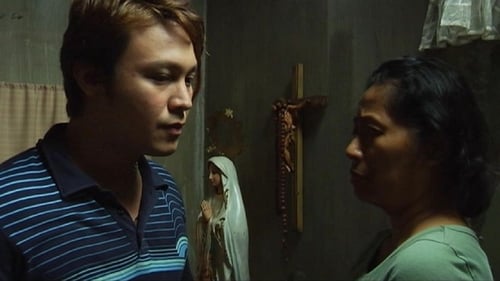
Jay is the name of the two protagonists in the film, one is living, the other dead. The living Jay is producing a documentary of the dead Jay, a gay teacher who was brutally killed. As Jay recreates and examines the life of his subject, his own life is affected when he unravels his subject's hidden life and secret love.
The story takes place in a small village on the beach of Sea of Azov at the beginning of 1960s. Adolescents passionately dream of love about which they have heard from their elder experienced friends. 16 year-old Ignat is the first to find out what the real feeling is. His love for an adventuress who pretends to be a singer from capital becomes destructive.

The story takes place in the summer of 1995 outside of Gothenburg, Sweden, during the rise of Neo-Nazi violence that was sweeping across the country. The film "John Hron" is the true story about a teenager, his friends and family. John is caught up in defense of a student being bullied in school. As the conflict with the bully escalates it soon causes strain between John and his friends.

In the Lesotho highlands, a 15-year-old boy tends his family's flock of sheep alone through the winter. His younger brother might have to quit the village school to help him. And two girls attempt to maintain their unique friendship when one of them goes off to attend a better school and the other stays in the village. Over the span of two years the film accompanies four teenagers in an isolated mountain village on their path to adulthood - a path between individuation and tradition.

Alejandro Gerber Bicecci's "Vaho" (Becloud) tells the story of three childhood friends, Andres, Felipe, and Jose, and their lives in a dusty, run down corner of Mexico City. The boys were inseparable until they witnessed a tragedy that haunts them to the present day. The tragedy shaped each boy differently, and had a profound effect on their lives.
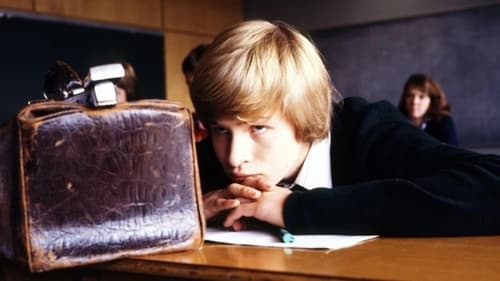
15-year-old Moritz lives in a posh area of Hamburg, but his parents did not care about it. The teenager suffers from ridicule of his classmates and finds refuge in his dreams and playing the saxophone. Only when he joins a band and began performing there Moritz pulled out of the vicious circle, and finds love with new friends...

Although he was once a colonel in Argentina, the principal character in this film is now a wealthy exile living in Paris with his beloved wife, who has been unable to bear children. To fill this void in their lives, he feeds and clothes abandoned children, raising them in his mansion as if they were his own. As would never be the case in real life today, in this fantasized story set in 1925, no one objects to this behavior, and they live pleasantly and enjoyably together. Things grow considerably more animated when a stage magician places his very attractive daughter in the colonel's household, which stirs a lively romantic interest from his boys and from the great man himself.

A family finds itself in a dead-end situation. They are only safe behind the walls of their own house and yard. As time vanishes from their home, the shelter slowly turns into a prison. However, nothing can keep the children from dreaming and yearning to be free and the urge to make a decision seems inevitable.


